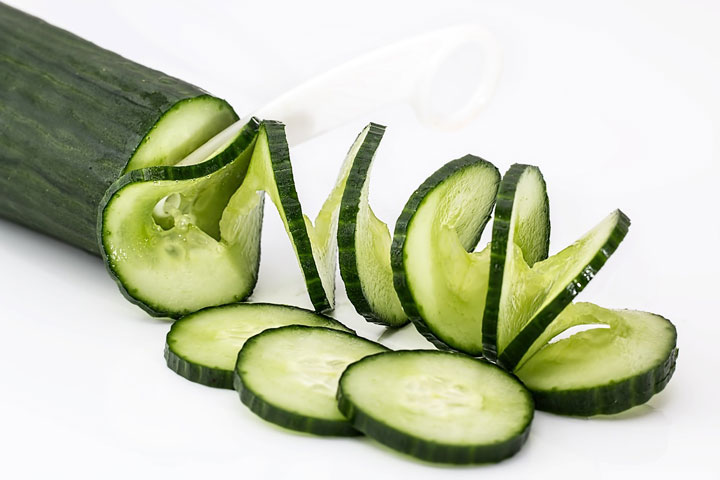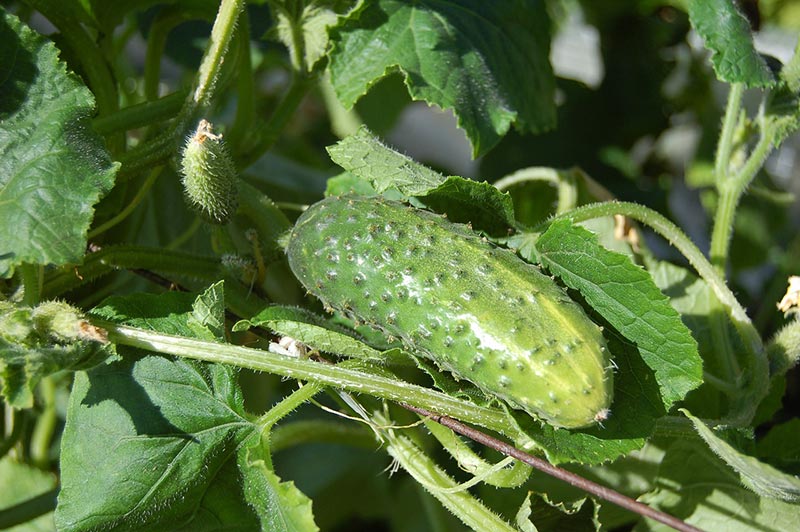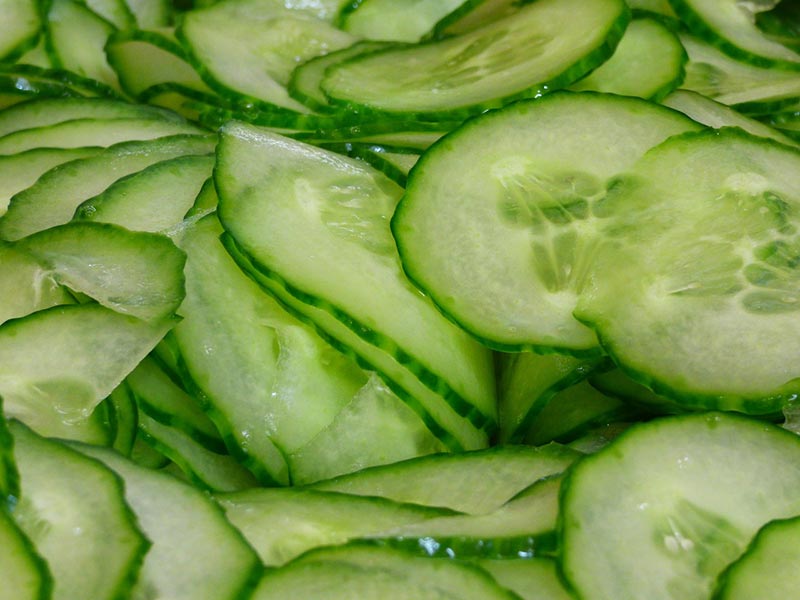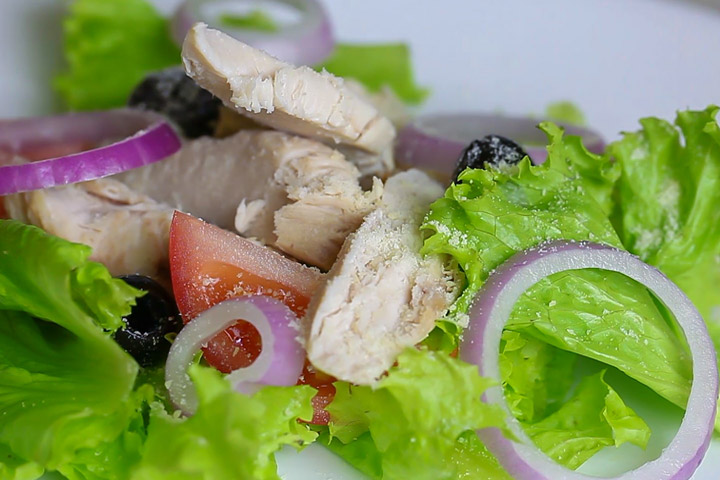
The fourth most widely cultivated “vegetable” in the world, the cucumber, related to both the melon and squash families, is technically a fruit. With its mild, refreshing flavor that mixes so well with other garden offerings, cucumbers are actually 90% water, but still manage to provide many valuable health benefits.
Like so many other plant-based foods, cucumbers originated in the Mediterranean, and were brought to the Americas by European explorers in the 1500s. There are dozens of varieties thriving in both cool and warm climates. While commercial cucumber growing operations in California and Florida keep most of the country in this refreshing green fruit between March and November, Mexico is the largest U.S. provider through the deepest winter months. China, however, is by far the most prolific supplier, exporting around two-thirds of the total cucumber production worldwide.
Growing on a long, trailing vine, cucumbers come in two main categories: slicing cucumbers, which are generally larger and thick-skinned; and pickling cucumbers, which are smaller and thinner-skinned. Pickling usually involves slicing and soaking in brine (highly salted water) and vinegar to preserve and ferment the fruit.
An alternative is the longer, thinner English or gourmet cucumber, also known as “burpless,” with seeds so small they’re basically inconsequential.
Seedless cucumber varieties are attained through a natural parthenogenesis process, which allows them to produce without pollenization. While seedless cucumbers are popular in the marketplace, the seeds do contain a number of valuable nutrients that are sometimes absent in the rest of the fruit.
In the kitchen, you have several options for fresh cucumber preparation. They’re delicious sliced and eaten with salt. Combined with chopped sweet onions in apple cider vinegar, salt and pepper, they provide a savory, summery side dish.
Cucumbers Health Benefits
Grown wild throughout India, cucumbers are used as a traditional medicine to treat headaches. The seeds have found a niche as a diuretic, and the juice is used as an acne cream and a soothing remedy to tired, puffy eyes. These early uses led scientists to investigate cucumber fruit, seeds, and extracts as an effective treatment in other areas of medicine.
Cucumbers are also known to be an excellent source of vitamins, including anti-inflammatory vitamin K, infection-fighting vitamin C, and energy-producing pantothenic acid (vitamin B5). Body-beneficial minerals include bone-building manganese, as well as potassium and magnesium, both good for your heart.
Lignans, unique polyphenols in crucifers and alliums such as cabbage and onions, are known for containing health benefits, such as lowering the risk of heart disease. But recent studies now show that cucumbers also contain powerful lignans that bind with estrogen-related bacteria in the digestive tract, contributing to a reduced risk of several cancers, including breast, uterus, ovarian, and prostate cancers. Other phytonutrients in cucumbers called cucurbitacins – part of a larger group known as triterpenes – are known to strongly inhibit cancer cell development.
Studies Done on Cucumbers
In one study, cucumber extracts were screened for signs of free radical scavenging and analgesic activities, following the lead of traditional folk uses. Not only were the extracts found to provide phytonutrients with these activities, a number of other valuable compounds were found, including glycosides, steroids, flavonoids, carbohydrates, terpenoids, and tannins.
Cucurbitacins in plants have already been identified as having pharmacological and biological benefits, including anticancer activities. But another study related more recent discoveries showing that cucurbitacin also has a strong inhibiting effect on cancer signaling pathways, which cancer cells require to survive and proliferate. The conclusion discussed the likelihood that cucurbitacin could be used as a future anticancer drug in clinical settings.
Cucumbers Fun Facts
For those who’ve noticed their cucumbers seem to deteriorate soon after refrigerating them, U.C. Davis has reported that cucumbers maintain freshness longer when stored at room temperature.
Cucumbers are also highly sensitive to ethylene, a natural plant hormone responsible for initiating the ripening process in several fruits and vegetables, so another recommendation is to store cucumbers away from bananas, melons, and tomatoes because of the natural ethylene they generate.
Summary
Cucumbers add a mild, pleasing, just-from-the-garden freshness appreciated throughout the world. That may be why they enjoy the number four spot in the ranks of garden produce. Cucumbers require a bit of garden space, since they grow on trailing vines. Pickling and slicing cucumbers are the two main varieties of this long, cylindrical, green fruit, with dozens of varieties for eating at the table or sending through a fermentation process to produce bottled offerings such as dill pickles, bread and butter pickles and sweet gherkins.
The health benefits of cucumber include vitamins C, A, K and B5, as well as manganese, potassium, and magnesium, endowing health benefits that fight inflammation and infection while helping to produce energy and support bone and heart strength.
The information on this site is not intended or implied to be a substitute for professional medical advice, diagnosis or treatment. All content, including text,graphics,images and information, contained on or available through this web site is for general information purposes only.






Leave a Reply